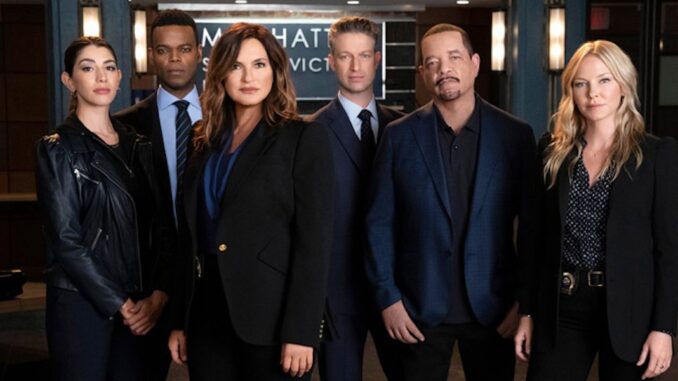
SVU's Most Controversial Episode Yet Sparks Online Firestorm
For over two decades, Law & Order: Special Victims Unit has been a cultural touchstone, a procedural bastion in the ever-shifting landscape of television. Ripped-from-the-headlines, unflinching in its portrayal of sexual assault, and fiercely advocating for victims, SVU carved out a unique niche, becoming not just entertainment, but for many, a voice for the voiceless. Its formula, though occasionally clunky, was largely sacrosanct: expose the crime, track the perpetrator, bring them to justice, and offer a glimmer of hope for survivors.
Then came "The Algorithm's Echo."
The episode, ostensibly a timely exploration of consent in the digital age, involved a charismatic, progressive tech mogul accused of sexual assault by multiple former employees. On paper, it sounded like quintessential SVU. In execution, it became a grenade detonating across the show's loyal fanbase and the wider online world, igniting a firestorm that dwarfed any previous controversy in the show's long history.
The spark was not a single egregious scene, but a series of subtle, insidious narrative choices that, viewers argued, fundamentally betrayed the show's core ethos. Instead of focusing on the victims' trauma and the systemic power imbalances at play, "The Algorithm's Echo" spent an inordinate amount of time humanizing the alleged perpetrator, exploring his "complex" motivations, and even casting doubt on the accusers' credibility through their past social media activity and financial settlements. A particularly galling moment involved Olivia Benson herself, typically the unwavering advocate, engaging in a dialogue that seemed to suggest one of the accusers might have been "leading him on" through playful banter in text messages – a dangerous echo of victim-blaming rhetoric the show had historically fought against.
The outrage was immediate, a digital inferno erupting across platforms. Twitter, the primary battleground, exploded with the hashtag #SVUBetrayal trending for days. Loyal fans, many of whom had grown up with the show, expressed a collective gasp of disbelief, quickly followed by a furious roar. "Is this really the show that taught me about consent?" one viral tweet lamented. "They just undid 25 years of advocacy in 43 minutes." Another user posted a montage of old Benson quotes championing victims, juxtaposed with stills from the new episode, asking, "Who IS this show anymore?"
Reddit's Law & Order subreddits became virtual battlegrounds, with 10,000-word threads dissecting every questionable line of dialogue and plot point. Fan theories ranged from network interference to a deliberate attempt to generate controversy, but the overwhelming sentiment was one of profound disappointment and betrayal. TikTok creators used the episode as a springboard for educational videos on consent and victim credibility, turning the show's missteps into teachable moments for a new generation.
The firestorm wasn't confined to the usual fan spaces. Journalists, legal experts, and advocates for survivors weighed in, many expressing shock that a show renowned for its sensitivity could so spectacularly misread the room. Op-eds denounced the episode as irresponsible, while legal commentators pointed out its potentially damaging influence on public perception of real-life sexual assault cases. Even former cast members, subtly or overtly, hinted at their discomfort with the episode's direction.
The intensity of the reaction stemmed from the unique position SVU holds in the cultural consciousness. It wasn't just another TV show; it was, for many, a form of education, a source of validation, and a symbol of justice for a crime often minimized or dismissed. To see it falter so spectacularly on its own hallowed ground felt like a profound betrayal of trust. The outrage wasn't merely about a bad episode; it was about the perceived erosion of a bedrock institution, a champion seemingly faltering in its most crucial fight.
In the aftermath, the network issued a terse statement acknowledging the "intense viewer feedback" but stopping short of a full apology. The cast, usually active on social media, remained conspicuously silent, adding to the speculation. While "The Algorithm's Echo" will undoubtedly go down in SVU lore as its most controversial chapter, its true impact lies not just in the immediate online vitriol it provoked, but in the deeper questions it raised about media responsibility, the evolving demands of socially conscious storytelling, and the delicate, often precarious, relationship between a long-running show and the deeply invested audience it has cultivated. The firestorm may eventually die down, but for many, the smoke of "The Algorithm's Echo" will linger, a stark reminder that even the most trusted voices can lose their way, and that the audience, armed with the power of the internet, is always watching, and always ready to hold them accountable.
